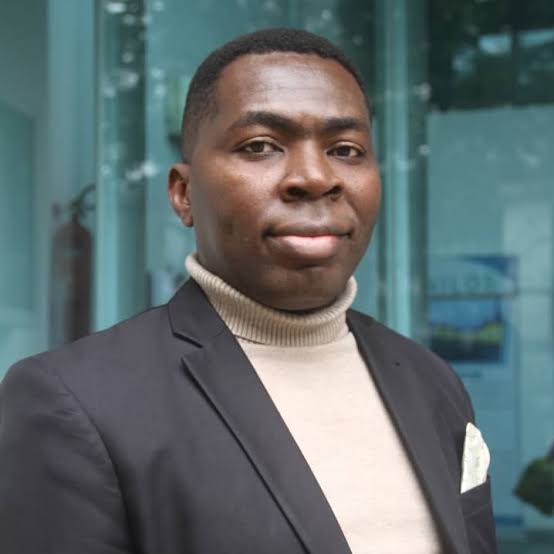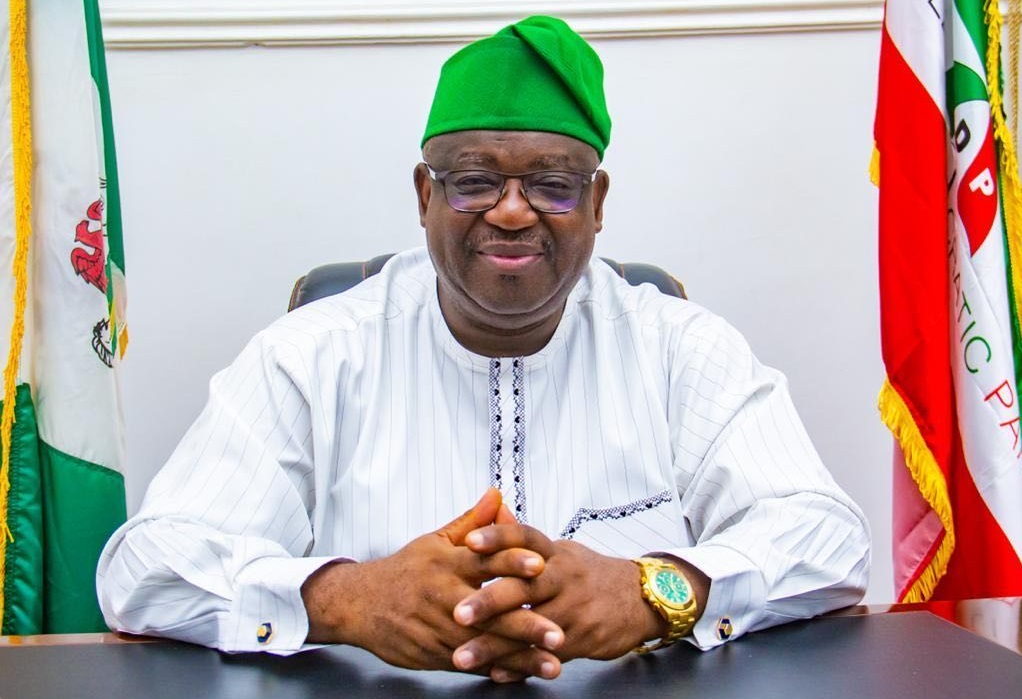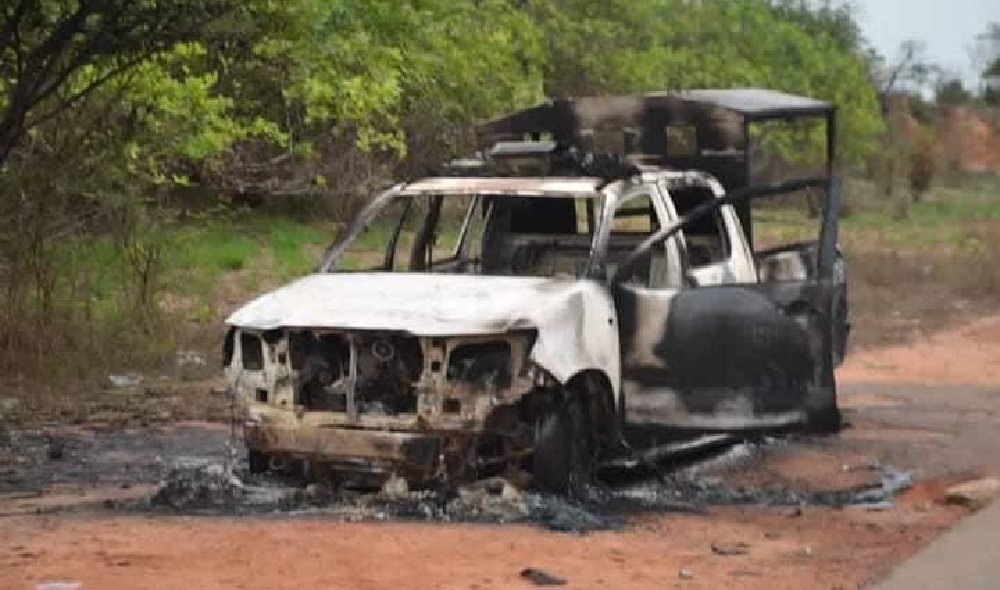News
“6,000 Medical doctors Left for Nigerians: Opportunities for African Traditional Medicines, Medical Cannabis, and the Revenue Item for the Tax Reform Bills”

By
Dr. Tonye Clinton Jaja,
Executive Director,
Nigerian Law Society (NLS).
On 23rd January 2025, it was reported that:
“…about 1,300 (medical) consultants left Nigeria in the last five years.
On Thursday, the Medical and Dental Consultants Association of Nigeria (MDCAN) said only 6,000 consultants are left in the country.
The association’s president, Muhammad Mohammad, said this during the association’s National Executive Council (NEC) Meeting in Ilorin, Kwara State.”
According to the World Health Organisation (WHO) “ratio of medical doctors to population varies by country and can be used to determine how many physicians a service area needs.
The World Health Organization (WHO) recommends a ratio of one doctor per 1,000 people.”
Going by the current population of Nigeria, which is approximately 230,000,000 (two hundred and thirty million persons), it means that the ratio of medical doctors to the Nigerian population is three medical doctors to one hundred and fifteen thousand persons (3:115,000).
So assuming that a medical doctor takes two days to attend to one Nigerian citizen or resident, it would take the said medical doctor one full year (without taking any holiday) to attend to the said quota of 115,000.
This ratio (3:115,000) is 100 times above the WHO recommended standard ratio of one medical doctor to 1,000 population (1:1000).
As bleak as these statistics may appear, it presents an opportunity for both the receipt of foreign exchange and development of indigenous traditional medicine manufacturing.
Medical cannabis (popular known as Indian hemp or “Igbo”, “weed”, “ganja”) is now the new “crude oil” and foreign exchange earner for many African countries such as the Kingdom of Lesotho.
As far back as the year 2008, Lesotho amended it’s laws to comply with the relevant United Nations legislation to decriminalise and permit the cultivation and sale of the species of cannabis that is known as “medical cannabis”.
“Following the December 2, 2020, vote by the United Nations Commission on Narcotic Drugs, the removal of cannabis and cannabis resin from that Schedule entered into force in 2021. Since 2021, cannabis and cannabis resin remain listed in Schedule I of the Single Convention, alongside extracts and tinctures of cannabis.”
In a nutshell, the implication was that: “At that time, the ECDD, a Committee of the United Nations Office of Drugs and Crimes advised that certain cannabis-derived medicines like cannabidiol (CBD)have no potential to be abused or cause dependence but have significant health benefits for children with treatment-resistant epilepsy, and therefore should not be placed under international control.”
With this re-classification of cannabis, “In the 2019 African Cannabis Report, Lesotho’s industry was projected to be worth at least $92m (£76m) by 2023.”
Revenue in Lesotho’s Cannabis market is forecasted to reach US$3.77m in 2025. The revenue is anticipated to demonstrate an annual growth rate (CAGR 2025-2029) of 1.17%, leading to a market volume of US$3.95m by 2029.”
The BBC reported that:
The high altitude combined with fertile soils, untainted by pesticides, enables growers to produce a high-quality crop, valued all over the world.
Last year, (2017) Lesotho became the first African country to legalise the cultivation of marijuana for medicinal purposes, spawning a new sector in a country where the economy struggles to create employment opportunities.”
Going by the foregoing, Lesotho has increased it’s foreign exchange earnings through the sale of medical cannabis to Canada and other European countries that utilise it for the manufacture of medicines for treatment of cancer and epilepsy.
Let it be repeated here that Lesotho legalised the cultivation of MEDICAL CANNABIS for production of medication. This is different from cannabis that is used for recreational use. This species is not legalised.
This distinction is very important considering that some law-makers frown at the idea or even the mere mention of cannabis (Igbo, weed, ganja, skunk, etc.).
About the year 2022, or thereabouts, I still recall the difficulty of convincing my wife (who is a lawyer not to mention others) about why I was involved as a legal consultant for the drafting of a Bill to Legalise the Cultivation of Medicinal Cannabis in Nigeria. The said Bill was sponsored by Hon. Miriam Onuoha of the House of Representatives, National Assembly of Nigeria.
During my legislative advocacy, to promote the said Bill, the current majority leader told me point-blank that his constituents would not be happy that he is supporting a Bill to legalise the cultivation of MEDICAL CANNABIS, which he kept referring to as “Igbo” (the pidgin English language name) instead of the botanical name (cannabis sativa), which sounds more refined!!!!
I also approached a very popular human rights lawyer who is also a Senior Advocate of Nigeria-SAN to support the advocacy by filing a public interest lawsuit to compel the National Assembly to enact a law to give effect or “domesticate” the said UN legislation that de-classified cannabis. He “diplomatically” turned it down because of the risks to his reputation.
However, the current Deputy Speaker of the House of Representatives, National Assembly who had taken his time to read about the medical value of medicinal cannabis is on record as giving 100% support to the said Bill.
Several medical doctors provided myself and other members of our team with results of scientific studies that support the medical and medicinal benefits of the species of cannabis known as medical cannabis. It was an eye-opener for me.
It was based on those tangible, empirical evidence that I supported the drafting of a Bill for legalisation of cultivation of MEDICAL CANNABIS.
And it is on that basis that I now support the opportunity for Nigeria to increase it’s foreign exchange earnings through the cultivation of MEDICAL CANNABIS.
This has to be done under very strict regulations.
As the Government of Lesotho is doing, they enter into a direct partnership agreement that allows the foreign companies to be involved in the cultivation and processing and exporting of the medical cannabis.
It is not safe to allow indigenous Nigerians to be involved directly in the cultivation and processing and packing and exporting (“make them no come smoke am, or steal am finish”-as we would say in pidgin English language).
From the foregoing, it is obvious that the dearth of medical doctors in Nigeria present a golden opportunity for the growth and development of indigenous traditional medicine industry in Nigeria.
The Nigerian soil and tropical climate supports the growth of plants and trees that are the raw materials for production of medicines that can cure a lot of ailments.
Growing up as a child, I inherited asthma, as my grandfather was always with an inhaler. On one of the boat rides from ogoniland to my village (Opobo town) in the year 1987 or thereabouts, because of the exposure to cold breeze, I suffered an asthma attack and I was rushed to the local hospital upon disembarking from the boat. My mother who witnessed the whole incident told me that it was an elderly person with knowledge of local herbs that boiled some plants that was used to revive me after I drank it. And that was the last time, I experienced any sort of asthma attacks not even when I was resident in the United Kingdom, which has a colder weather than Nigeria. Till today, I have not used any inhaler, since the year 1987.
So this is a testament to the potency of our traditional medicines.
However, we are not paying attention to it as an alternative source of medicine and foreign exchange earnings.
It is hoped that this current dearth of medical doctors in Nigeria will open our eyes to the golden opportunity.
As the saying goes: “God never closes a door, without opening a window somewhere else”-Sound of Music (1964)!!!
News
Hong Kong regulatory authority alerted public about Ponzi scheme CBEX, exposed scam in 2024

According to an alert memo issued by the Securities and Futures Commission (SFC) in Hong Kong, CBEX was not licensed to conduct digital trading in Japan or Canada—despite the company’s claims to the contrary.
Amid mounting outrage in Nigeria over the operations of CBEX Group, which resulted in significant financial losses for many, SaharaReporters has obtained a document revealing that authorities in Hong Kong had flagged the company’s fraudulent activities as early as 2024.
According to an alert memo issued by the Securities and Futures Commission (SFC) in Hong Kong, CBEX was not licensed to conduct digital trading in Japan or Canada—despite the company’s claims to the contrary.
The SFC is an independent statutory body set up in 1989 to regulate Hong Kong’s securities and futures markets.
“We derive our investigative, remedial and disciplinary powers from the Securities and Futures Ordinance (SFO) and subsidiary legislation. Operationally independent of the Government of the Hong Kong Special Administrative Region, we are funded mainly by transaction levies and licensing fees,” it said on its website.
“The entity has adopted a name that is very similar to that of a property rights trading organisation based in China, when in fact they are not associated,” the memo said.
“While it purports to be a virtual asset trading platform and claims to hold a compliant digital asset license on its website, it does not, in fact, hold any relevant digital asset license in Canada—where it claims to be headquartered—or in Japan, where it claims to operate a digital asset trading platform.”
The report further noted that investors faced difficulties withdrawing virtual assets and alleged that CBEX misled users with fake withdrawal records.
“Investors reported difficulties with virtual asset withdrawals. The entity is suspected to have deceived investors with fake withdrawal records,” it added.
A review by SaharaReporters on Canada’s business registration portal showed that the closest registered entity to CBEX—CBEX Capital Corp—had its license revoked about a year ago.
Earlier, SaharaReporters reported that following the collapse of the CBEX platform, a group of enraged investors stormed and looted its office in the Oke-Ado area of Ibadan, Oyo State. The incident, which unfolded on Monday evening, saw a mob forcefully gain access to the premises and make away with furniture and office equipment.
Eyewitnesses said the chaos erupted after the platform abruptly crashed, wiping out user balances and rendering countless investments worthless.
In the wake of the collapse, devastated users flooded social media with posts expressing their anger and heartbreak, recounting stories of lost savings and dashed hopes.
In response to the crisis, Nigeria’s Securities and Exchange Commission (SEC) reiterated that any platform not registered with the SEC is considered illegal. During a virtual session with fintech stakeholders on Monday, SEC Director General Emomotimi Agama stated: “Recently, a post went viral concerning a certain platform and its activities. The fallout includes news of its closure and financial losses. I want to be very clear: if it is not registered, it is illegal.”
While he did not mention CBEX by name, the timing and context strongly suggest he was referring to the controversy.
On X (formerly Twitter), a user with the handle @mrsean_Okwute commented: “I’m just hearing the name CBEX. So Nigerians fell for another scam again? Now I understand why politicians have the nerve to do what they do. Some Nigerians really lack awareness.”
Another user, @Rukkie339, posted: “The streets are quiet—CBEX really did a number on investors. Never get involved in any investment promising 100% ROI. It’s a clear scam. Reach out to friends and family, console—don’t mock. It’s a tough time that leads to dark thoughts.”
News
‘Communities must now defend themselves,’ Gov. Mutfwang says after Plateau killings

Governor Caleb Mutfwang of Plateau has advised the youths to rise and defend their communities against gunmen attacks.
Mr Mutfwang said this on Tuesday when he visited communities in the Kwall District of the Bassa Local Government Area (LGA), recently attacked by gunmen.
“We have come to a point in Nigeria where every community must defend itself. I will not, however, support lawlessness, but we can’t afford to go to sleep,” he said.
Gunmen on Sunday night attacked the Zike and Kimakpa communities of Kwali District, Iregwe Chiefdom of Bassa, killing scores and destroying many houses and other properties.
Mr Mutfwang said the ongoing security challenges in the state have deprived the state of steady growth and development.
The governor disclosed that the state government had made tangible investments in technology to address the state’s current security challenges.
“Insurgency and terrorism have deprived us of the riches of the land; our developmental strides on the Plateau have been slow because of insecurity.
“There is no reason for us to be where we are; our people cannot go to their farms and engage in any economic venture. But as a government, we are doing everything possible to end these circles of attacks and killings,” he said.
The governor, who commiserated with the families who had lost their loved ones, vowed to bring the perpetrators to book.
Mr Mutfwang thanked President Bola Tinubu for his support to the state and called on the security agencies to intensify efforts towards tackling the current security challenges in Plateau.
“You have every reason not to be happy, but I want to assure you that we have taken steps to correct all the lapses of the past.
“As a government, we will support the security agencies towards ensuring that our people are safe.
“But let me remind you that whatever arrangements the security agencies make may not solve the problem; the solution will come from the communities,” the governor said.
(NAN)
News
Armed assailants ‘kill’ two police officers, set patrol vehicle ablaze in Enugu

At least two police officers were killed on Tuesday in a deadly attack by gunmen in Achị, Oji River Local Government Area of Enugu State.
It was gathered that the assailants struck at a checkpoint near the popular Ozudaa market, setting the police patrol vehicle on fire during the assault.
A disturbing video of the aftermath, now circulating widely on social media, shows the bodies of the slain officers lying by the roadside.
A message shared on the Achi community WhatsApp platform confirmed the incident, stating that two officers were killed and their operational vehicle torched.
A resident, who spoke to the media on condition of anonymity, said the gunmen operated without any resistance.
“Yes, there was an attack on a police checkpoint by gunmen at Achi Court near Ozudda market. The assailants killed two policemen, took their guns and set their vehicle ablaze. A few weeks ago, some gunmen attacked the same checkpoint, but the attack was repelled. It may be the same assailants that repeated the attack,” the resident said.
Meanwhile, details of the attack remain unclear, as the Enugu State Police Command has yet to confirm the incident.
Efforts to speak with State Police Public Relations Officer SP Daniel Ndukwe were unsuccessful. He did not take his calls or respond to a text message seeking his confirmation.
-

 News17 hours ago
News17 hours agoTears, anguish as Plateau Community buries 51 killed by bandits
-

 News17 hours ago
News17 hours agoSHOCKING! One month after giving birth, woman discovers another baby in her womb
-

 News15 hours ago
News15 hours agoCBEX: 60 fraudulent Ponzi scheme operators to avoid in Nigeria
-

 News16 hours ago
News16 hours agoAngry investors raid CBEX office, loot assets in Ibadan after digital Platform crash
-

 News23 hours ago
News23 hours agoPeter Obi speaks as Benue govt. blocks humanitarian visit
-

 News23 hours ago
News23 hours agoFUOYE VC suspended over sexual harassment allegations
-

 Politics16 hours ago
Politics16 hours agoIgbo Youths Set To Mobilize 5 Million Man-March In Support Of Tinubu, Kalu
-

 News16 hours ago
News16 hours ago‘Not something I’d wish on anyone’ — Melinda Gates opens up on divorce

















